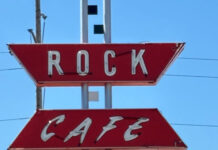The Oklahoma State Department of Health (OSDH) encourages the public to take safety precautions for the upcoming winter weather. Proper planning can reduce the risk of injury and illness while also ensuring a family is prepared for a major winter weather event.
Cold outdoor temperatures require residents to monitor not only their home temperature, but their body temperature as well. Reports from the Centers for Disease Control and Prevention (CDC) advises infants less than 1 year of age should never sleep in a cold room because infants lose body heat more easily than adults. Room temperatures should remain above 65 degrees.
In a sleeping area, babies should not be wrapped in blankets, but rather dressed in warmer clothing such as footed pajamas. Also, a baby’s face and head should not be covered while sleeping. It is important not to over bundle a baby, because overheating can be dangerous as well. Parents and caregivers should watch for signs of overheating, such as sweating or the baby’s chest feeling hot to the touch. If a comfortable indoor temperature cannot be maintained, temporary arrangements should be made to stay elsewhere.
It is also important for adults age 65 and older to remain in a warm environment as they often make less body heat because of a slower metabolism and less physical activity.
Scott Sproat, director of the OSDH Emergency Preparedness and Response Service, said it’s important to use caution when heating a home with a fireplace, space heater or wood stove, using them only when they are properly vented.
“You can protect yourself from carbon monoxide (CO) poisoning by installing a battery-operated CO detector,” said Sproat. “Never use generators, grills, camp stoves, or similar devices inside the house, in basements, in garages, or near windows. It’s also important to have chimneys cleaned and inspected each year.”
Other tips to prepare for winter weather include:
*Wear multiple layers of clothing to stay warm, as well as a hat, scarf, mittens, a water-resistant jacket and boots. Stay as dry as possible, as water against the skin from wet clothing can chill the body quickly.
*Be prepared if basic services such as water, gas, electricity or telephones are cut off for an extended period of time. Those who depend on electricity to operate medical equipment should have alternate arrangements.
*Vehicles should be winterized before winter storm season. Check the tread on all tires and make sure they are not too worn to risk losing traction on the road. Keep the gas tank full for emergency use and to keep the fuel line from freezing.
*Carry extra clothing, blankets and high energy snacks, such as trail mix or protein bars in your car for protection if the car stalls.
*Bring pets/companion animals inside during winter weather. Move other animals or livestock to sheltered areas with non-frozen drinking water.
*Stay informed. Know what National Weather Service winter storm and blizzard watches and warnings mean. Learn more about weather advisories at nws.noaa.gov .
For more information about preparing for winter weather and other events, visit www.ready.gov.













